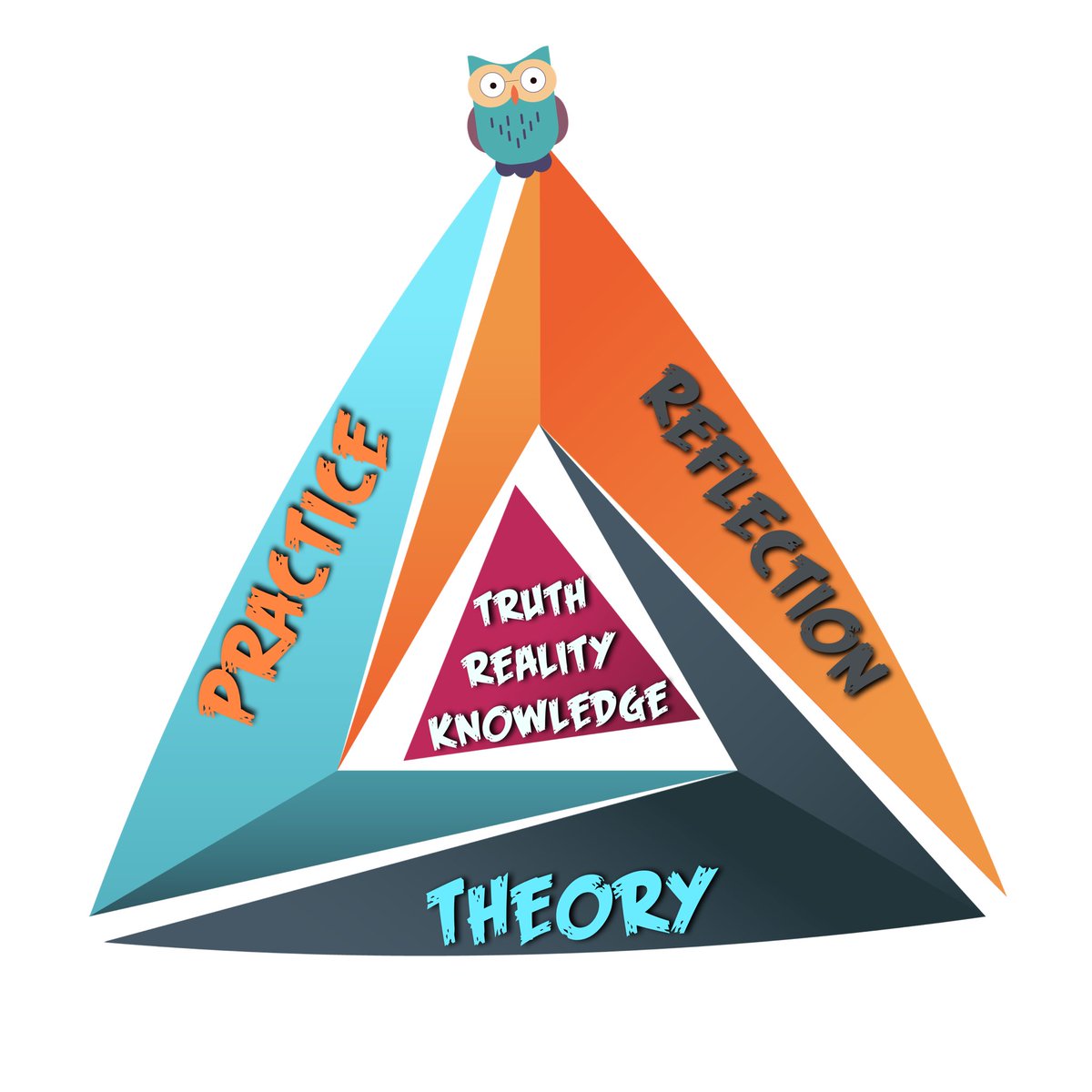
#Leadosophy is the fusion of philosophy and leadership. What does this mean?
It’s simple really: apply critical thought and reflection to the art and skill of leading others. How many times have you asked or been asked: What’s your #leadership philosophy?
Reflection is a critical component, and reflection undergirds leadership and philosophy. Act-reflect-act-reflect. In the center of the triangle lie Truth, Reality, and Knowledge. As leaders, we must seek the co-creation of truth, reality, and knowledge.
If we focus more on co-creation through collaboration, then we may focus less on claiming sole ownership of the truth, which may imply that you can’t possibly have it. If we focus on co-creating knowledge, then we commit to learning from one another.
Let us circle back to this idea of reflection as it applies to the search for truth and knowledge.
The search for truth—an objective and out-there-in-the-world truth if it exists—requires reflective thought. It is difficult to find objective truth (I’m not a relativist) in the realm of the abstract. The pursuit of knowledge also requires reflection.
Through a reflective process, knowledge can be concretized or jettisoned. Some of our most closely held beliefs are worthy of reflection, for these beliefs:
1. May have been acquired in error,
2. They may have been acquired through force or coercion,
3. They may have been acquired in times when our mind was in its early stages of development and vulnerable to any whimsical and external influence, and lastly,
4. Our beliefs might have the appearance of soundness. But, these beliefs also require occasional reexamination, for both time and circumstances will change. This is especially true with leadership philosophies and how they evolve over time. Very dynamic process.
So there’s a brief glimpse into the fusion of leadership and philosophy. Reflection is a vital component. #Leaders must reflect on their actions, their decisions, their style and manner of leading, ave their understanding of human behavior.
One cannot critically think without some form of reflection. Issues, problems, past-present-future decisions, beliefs, morals, principles, and goals are all worthy of philosophical reflection as they apply to leading others, to following others.
@threadreaderapp unroll
• • •
Missing some Tweet in this thread? You can try to
force a refresh



